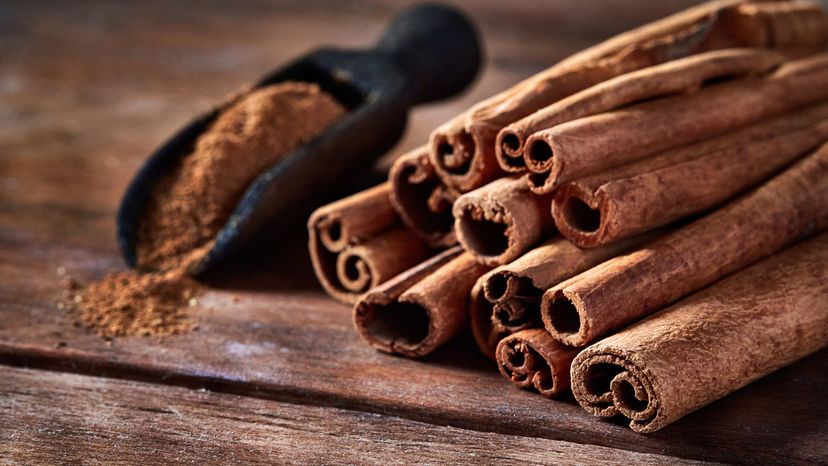
You probably have some cinnamon powder or sticks in your kitchen cupboard. It's a warming, stimulating, pleasant-tasting herb with many uses.
Cinnamon is widely used as a flavoring agent for candy, toothpaste, mouthwashes, and bath and body products. In herbal teas, cinnamon improves the flavor of less palatable herbs. And, of course, it is a staple for baking and cooking.
Advertisement
But cinnamon has strong herbal remedy uses as well. In addition to having a germicidal effect, cinnamon helps improve circulation and relieve discomfort or issues in the abdomen. Cinnamon is more than just an everyday spice!
Uses of Cinnamon
Perhaps you use cinnamon more in the winter. Spiced cider, prepared by steeping cinnamon sticks and other herbs in apple cider, is a traditional winter beverage. Cinnamon has an affinity for the uterus and digestive organs because it improves circulation and energy flow in the abdomen. In Chinese medical philosophy, pain, cramps, and congestion are considered blocked energy. Cinnamon is thought to move qi, or vital energy, when qi is "stuck" in the abdomen. Cinnamon circulates the energy to the rest of the body and is thought to have a warming effect.
Cinnamon has a germicidal effect. Almost all highly aromatic herbs display some ability to reduce fungal infections and bacteria levels, and cinnamon in mouthwashes and gargles can help treat just these types of infections in the mouth.
You may use small amounts of cinnamon tea to relieve gas in the stomach. Larger amounts of cinnamon will stimulate and warm the stomach, promoting acidity and a laxative effect. Use of cinnamon as a laxative may prevent flatulence and intestinal cramping that can accompany the use of some other laxatives.
In the next section, you will learn how to prepare cinnamon for herbal remedies and some of the potentially dangerous side effects.
To learn more about treating common medical conditions at home, try the following links:
- For an overview of all of our herbal remedies, go to the main page.
- To learn more about treating medical conditions at home, visit our main page.
- One of the best things you can do for your health and well being is to make sure you are getting enough of the vital nutrients your body needs. Visit our Vitamins page to learn more.
This information is solely for informational purposes. IT IS NOT INTENDED TO PROVIDE MEDICAL ADVICE. Neither the Editors of Consumer Guide (R), Publications International, Ltd., the author nor publisher take responsibility for any possible consequences from any treatment, procedure, exercise, dietary modification, action or application of medication which results from reading or following the information contained in this information. The publication of this information does not constitute the practice of medicine, and this information does not replace the advice of your physician or other health care provider. Before undertaking any course of treatment, the reader must seek the advice of their physician or other health care provider.Before engaging in any complementary medical technique, including the use of natural or herbal remedies, you should be aware that many of these techniques have not been evaluated in scientific studies. Use of these remedies in connection with over the counter or prescription medications can cause severe adverse reactions. Often, only limited information is available about their safety and effectiveness. Each state and each discipline has its own rules about whether practitioners are required to be professionally licensed. If you plan to visit a practitioner, it is recommended that you choose one who is licensed by a recognized national organization and who abides by the organization's standards. It is always best to speak with your primary health care provider before starting any new therapeutic technique.
Advertisement